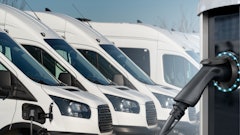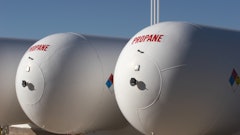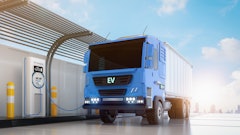
Propane-fueled medium-duty and heavy-duty (MD-HD) internal combustion engine vehicles provide a lower carbon footprint solution in 38 U.S. states and Washington, D.C., when compared to MD-HD electric vehicles (EVs) charged using the electrical grid, according to a study released by the Propane Education & Research Council (PERC).
“It’s often assumed that full electrification of all sectors will lead to their full decarbonization, but little thought on how electricity is currently generated, stored, transmitted, and consumed has been considered,” says Dr. Gokul Vishwanathan, director of research and sustainability at PERC. “While a fully renewable-based electric grid is not feasible anytime soon, propane is an effective solution today for accelerating decarbonization of transportation and other energy sectors.”
From PR Newswire
- The comparative analysis reveals that MD-HD vehicles powered by renewable propane provide a lower carbon footprint solution in every U.S. state except Vermont where electricity is generated by, and imported from, Canadian hydroelectric power plants.
- Decarbonization can be accelerated by adopting propane as the fuel of choice for MD-HD vehicles.




















